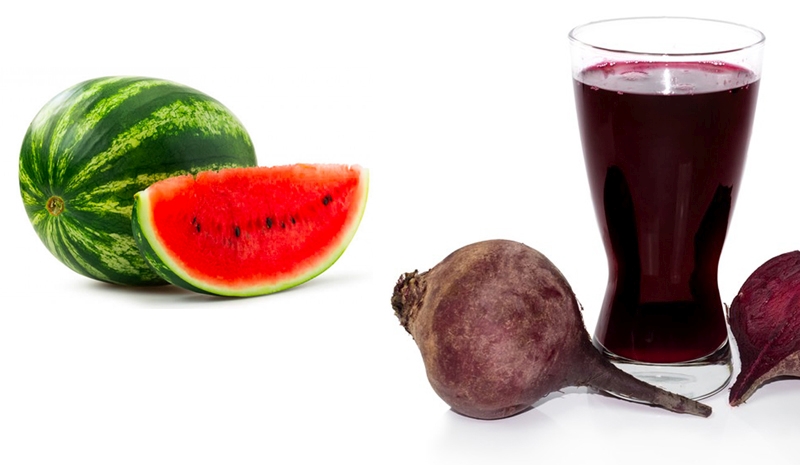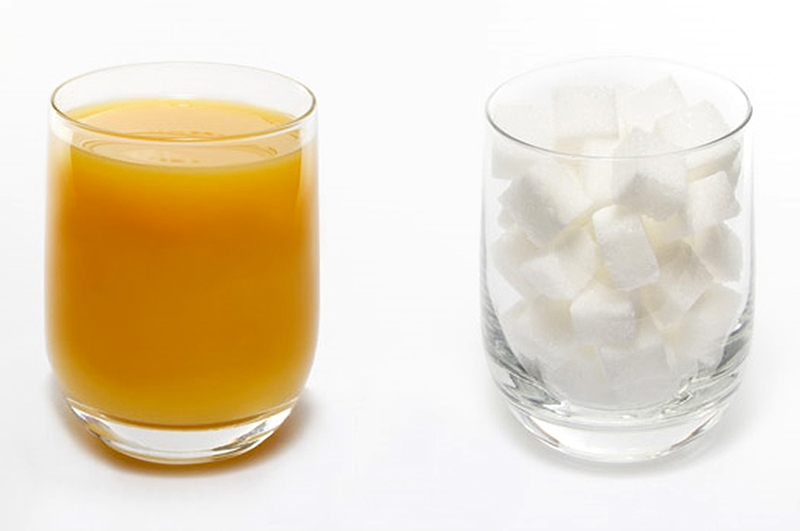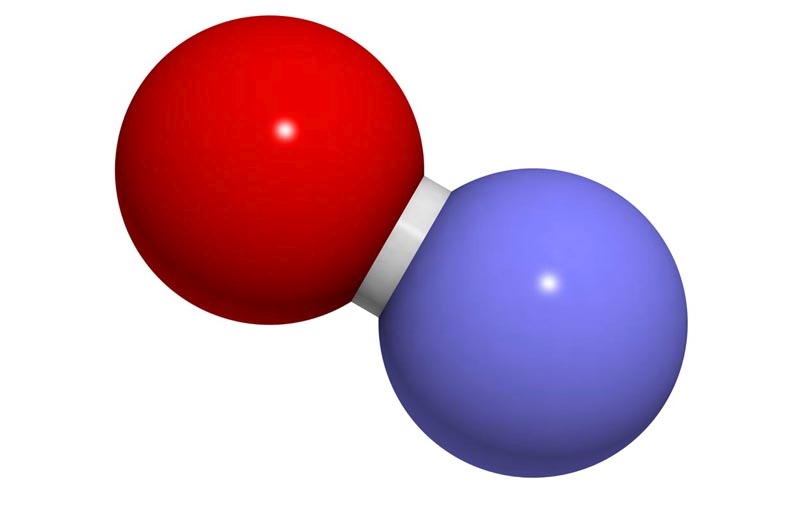You are viewing 1 of your 1 free articles. For unlimited access take a risk-free trial
Divine intervention: embrace the dark side of cocoa
SPB looks at new research on cocoa, and explains why cocoa products are not only good for health, but may also aid performance too!

SPB looks at new research on cocoa, and explains why cocoa products are not only good for health, but may also aid performance too!
Back in the 12th and 13th centuries, the Aztec civilization flourished in central Mexico. As well as developing a rich cultural heritage, the Aztecs also possessed advance farming skills, and one of the most popular crops grown at that time was the cocoa bean. Folklore suggests that Aztec Emperor ‘Montezuma’ drank cocoa in large quantities, describing it as the ‘divine drink, which builds up resistance and fights fatigue’. Meanwhile, the ancient Incas living in the South American Andes about the same time called cocoa ‘the drink of the Gods’. And as is so often the case, the wisdom of our ancient forebears has been borne out by modern science.
Cocoa research
It was about twenty years ago that scientists began to take an interest in the potential health benefits of cocoa products such as dark chocolate and cocoa beverages. At that time, there was a growing understanding of the role of naturally occurring plant antioxidants (phytochemicals – see this article) in human health, and it was soon identified that the humble cocoa bean was a very rich source of source of polyphenol and flavanol antioxidants, which are known to help reduce the incidence of various degenerative diseases, especially cardiovascular disease(1).
In particular, it soon became apparent the there was an inverse association between the intake of flavanol-rich cocoa products and blood pressure(2). In short, consuming higher levels of flavanols in cocoa products seemed to result in lower (and healthier) blood pressure levels. These findings were also supported by real world observations; the Kuna Indians in the Caribbean consume large quantities of flavanol-rich cocoa powder and have very low levels of blood pressure compared to Western societies. They are also known to have very high levels of longevity - presumably through improved cardiovascular health thanks to the high flavanol intakes(3).
As research has progressed, the benefits of cocoa products have now been observed more widely across different populations. In a very recent study on cocoa consumption and health/mortality, researchers found a highly protective effect from cocoa(4). Regardless of other health factors such as body mass index and blood cholesterol levels, scientists found that there was significantly lower risk of mortality from cardiovascular disease, heart disease and cancer of 13%, 16% and 12% respectively when cocoa consumption was high compared to when it was low or nil. A reduction in blood pressure accounted for only around 4.3% of this reduced risk, indicating that while there is a protective effect associated with reduced blood pressure and cocoa consumption, this protection extends into other aspects of health too!
How does cocoa work?
Of all the health benefits that cocoa appears to provide, it’s the reduction of blood pressure that has been most extensively investigated. Although the process is complex and poorly understood, there seems to be three principle ways cocoa products can lower blood pressure (and so improve cardiovascular health):
- Research shows that cocoa flavanols are able to interact with and inhibit a key enzyme (a protein that controls and regulates metabolism) in the body called angiotensin-converting enzyme-2 (ACE-2). When this enzyme’s activity is ‘down-regulated’, blood pressure is known to fall. Indeed, overactive ACE-2 expression in the body is known to cause high blood pressure, which is why many common blood pressure medications work by ACE-2 inhibition.
- Flavanols, and particularly flavanol-rich cocoa, elevate the availability of the key signalling molecule called nitric oxide (NO for short – see this article). Cocoa flavanols achieve this by stimulating an enzyme call ‘NO synthase’, which leads to high levels of NO synthesis. NO is a powerful blood vessel relaxant, enabling blood vessels to dilate (vasodilation), resulting in improved blood flow and reduced blood pressure. Of note is that NO-mediated vasodilation is the same mechanism of action that produces sub-maximal exercise benefits in athletes who consume nitrate-rich beetroot juice.
- A third and emerging mechanism is that cocoa flavanols may be able to positively affect mitochondrial structure and function via increased permeability of the mitochondrial cell walls and stimulation of mitochondrial biogenesis(5). In plain English, cocoa flavanols may be able to increase the health and the number of mitochondria (the cells’ energy producing factories) in the body. This is important since a decline in mitochondrial function is known to be associated with poor vascular health.
Although more research is needed to clarify these mechanisms, both the increased NO levels and the mitochondrial benefits produced by cocoa flavanols have potentially important implications for athletes. As we’ve already mentioned, increased levels of nitric oxide are known to stimulate blood flow to the muscles, which can result in both endurance and strength performance gains in athletes(6-9).
In addition, any nutritional intervention that improves mitochondrial health and numbers is almost certainly beneficial for endurance performance. That’s because we know that a key element of endurance adaptation following a bout of endurance exercise, is that key genes are stimulated by two signalling molecules (AMPK and PGC1-alpha) to synthesize more mitochondria and mitochondrial enzymes involved in aerobic metabolism(10). All things being equal, more and better functioning mitochondria inevitably lead to better endurance performance!

How effective are cocoa products for producing blood pressure/blood flow benefits?
One of the questions about the benefits of cocoa is how effective it really is at producing benefits. Despite an abundance of research, it’s been hard to draw firm conclusions due to a number of factors:
- Studies have used a variety of cocoa products – eg cocoa beverages, milk chocolate and dark chocolate of different strengths (% cocoa solids).
- Studies have used different doses of cocoa products and in interventions lasting for very different time periods.
- Studies have used different cocoa varieties containing different levels of polyphenols and flavanols.
- Some studies have used subjects with high blood pressure while others have used studies with normal blood pressure.
In an effort to reach a definitive answer to the above, a brand new study published in the journal ‘Foods’ has drawn all the data together(11). This study has pooled all the data from 31 previous studies on the subject of cocoa consumption and blood pressure, and analyzed studies where subjects had either normal or high blood pressure (a systolic pressure of over 130mm Hg) and where cocoa products were consumed for at least two weeks. The researchers concluded the following:
- Regardless of a subject’s starting blood pressure (ie high or normal), the consumption of cocoa products for more than two weeks was associated with significant reductions in systolic (see figure 1) and diastolic blood pressure (diastolic = pressure in between heartbeats when the heart is relaxed; systolic = pressure when the heart contracts).
- Compared with cocoa beverages, which on average lowered resting systolic blood pressure average by around 1.5mm Hg, dark chocolate lowered systolic blood pressure by 4mm Hg.
- When the daily intake of flavanols from cocoa products (ie the cocoa variety was flavanol rich) was above 900 mg, the blood-pressure lowering effect was even greater.
Figure 1: the pooled effect of cocoa consumption on 24-h systolic blood pressure

Each black diamond shows the overall effect of cocoa consumption. On the scale bottom right, zero = no benefit; a negative number shows a drop in blood pressure. This drop was evident regardless of whether subjects had high or normal blood pressure at baseline.
In conclusion, we can be confident that the consumption of high-cocoa solid products benefits everybody – not just those with cardiovascular problems such as high blood pressure. For athletes, an increase in the consumption of cocoa flavanols may also provide performance benefits (in addition to health benefits) thanks to improved muscle blood flows. This is not to say of course that chocolate, or even dark chocolate should become a major feature of your diet. However, a well balanced and sustainable diet is one that is enjoyable, tasty and where treats are most definitely allowed. So when you feel like a tasty treat, dark chocolate products should definitely be at the top of your shortlist!
Practical advice on using chocolate
Want to increase your intake of cocoa products? Here are some tips and guidelines:
- Dark chocolate - contains a small amount of sugar and vanilla along with cocoa liquor, cocoa butter and cocoa powder (collectively termed ‘cocoa solids’). For example, 100g of 70% cocoa-solid chocolate contains 70g of cocoa solids and around 30% sugar. A 100g bar of 85% cocoa-solid chocolate contains 85g of cocoa solids and just 15g of sugar. These types of chocolate contain high levels of polyphenols and flavanols due to their high cocoa solid content and relatively low levels of sugar (a good thing).
- Milk chocolate - also contains cocoa solids, but unlike dark chocolate, contains added milk and quite a bit more sugar than dark. For example, a 100g bar of a typical milk chocolate contains around 25-30g of cocoa solids and 55g of sugar. Although milk chocolate contains some flavanols therefore, the levels are much lower than in high-cocoa solid dark chocolate - explaining why those looking for health and performance benefits should always choose dark chocolate over milk.
- Cocoa content - If you’re already a dark chocolate fan, you can just enjoy eating a little bit (around 20-40g or so – that’s 2-4 squares of a 100g bar) everyday. As mentioned above, 70% or more cocoa solid chocolate is recommended and 85% is even better as there’s even more cocoa and less sugar. More than this however (ie 90% and above) and the chocolate starts to become quite bitter and far less palatable.
- Sweetness - If you’re a milk chocolate fan, you’ll be used to much higher levels of sweetness. A good idea is to try consuming some 50% cocoa solid dark chocolate; once your taste buds adapt, try moving up to 60% then 70%. And in case you’re worried, unlike sugar-filled milk chocolate, you’ll soon discover that a couple of squares or so of dark, high cocoa solid chocolate is very satisfying!
- Athletes and performance –if you’re looking for a performance edge, as we’ve indicated, the benefits of reduced blood pressure are associated with improved blood flow to the muscles. This increased flow is mediated by increased NO production thanks to the cocoa flavanols. However, unlike the NO-boosting effects of nitrates and beetroot juice, which are relatively short-term (a few hours) in nature, the effects of cocoa flavanols appear to be more prolonged, taking longer to accrue and longer to dissipate. This would suggest that there’s no particular reason to consume cocoa products prior to exercise to benefit from improved muscle blood flow. That said, there is some evidence that pre-exercise dark chocolate can increase fat oxidation during exercise(12), which could be a useful for those seeking fat loss!
References
- Biosci Biotechnol Biochem. 2000 Dec;64(12):2581-7
- Cardiovasc. Pharmacol. 2009;54:483–490
- Am. Soc. Hypertens. 2009;3:105–112
- Eur J Epidemiol. 2022 Apr;37(4):321-333
- J Agric Food Chem (2016) 64(25):5180–7 J Physiol (2011) 589(Pt 18):4615–31
- Nitric Oxide. 2019 Apr 1; 85():44-52
- Med Sci Sports Exerc. 2014 Dec; 46(12):2326-34
- J Strength Cond Res. 2016 Dec; 30(12):3520-3524
- J Appl Physiol (1985). 2010 Jul; 109(1):135-48
- Clin. Nutr. 2011;93:884S–890S
- Foods. 2022 Jul; 11(13): 1962.
- Int J Sport Nutr Exerc Metab. 2011 Apr;21(2):113-23.
Newsletter Sign Up
Testimonials
Dr. Alexandra Fandetti-Robin, Back & Body Chiropractic
Elspeth Cowell MSCh DpodM SRCh HCPC reg
William Hunter, Nuffield Health
Newsletter Sign Up
Coaches Testimonials
Dr. Alexandra Fandetti-Robin, Back & Body Chiropractic
Elspeth Cowell MSCh DpodM SRCh HCPC reg
William Hunter, Nuffield Health
Keep up with latest sports science research and apply it to maximize performance
Today you have the chance to join a group of athletes, and sports coaches/trainers who all have something special in common...
They use the latest research to improve performance for themselves and their clients - both athletes and sports teams - with help from global specialists in the fields of sports science, sports medicine and sports psychology.
They do this by reading Sports Performance Bulletin, an easy-to-digest but serious-minded journal dedicated to high performance sports. SPB offers a wealth of information and insight into the latest research, in an easily-accessible and understood format, along with a wealth of practical recommendations.
*includes 3 coaching manuals
Get Inspired
All the latest techniques and approaches
Sports Performance Bulletin helps dedicated endurance athletes improve their performance. Sense-checking the latest sports science research, and sourcing evidence and case studies to support findings, Sports Performance Bulletin turns proven insights into easily digestible practical advice. Supporting athletes, coaches and professionals who wish to ensure their guidance and programmes are kept right up to date and based on credible science.













